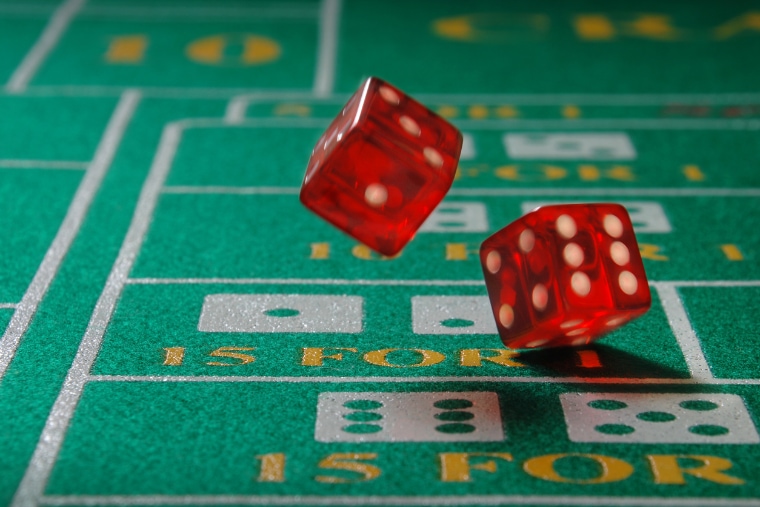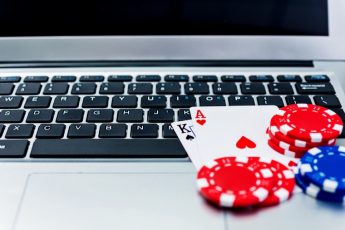
Is There Such A Thing As Luck?
A quick Google search online on gambling would turn up hundreds upon hundreds of articles advising you on how to ‘win money quick’ by ‘increasing your luck’. In gambling, luck is synonymous with winning and is often coveted by gamblers alike –– by following superstitions such as blowing on the dice and wearing red. However, is that all there is to winning? If luck is defined as a set of successful events brought about by chance, how does this explain someone winning roulette numbers five times in a row? Is there something behind this seemingly ‘random’ occurrence, and are we able to control it?
The concept of luck is something that has boggled mathematicians and psychologists alike. Professionals have theorized that over time, luck would more or less even out –– hence, each person should have equal lucky and unlucky experiences. However, we know that this doesn’t necessarily occur in real life. There have been occurrences that seem too good to be true, where certain people can win major lottery jackpots despite never playing slots in their lives, whilst the vast majority remain jackpot-less, despite playing the game over and over again. We know that the mathematical odds of this are astronomical, but yet, it continues to happen. But if you are feeling lucky, get a free signup bonus here.
How do some people manage to attain what the same people who have been trying for hours can’t? Are some people simply, luckier than others? Could this random occurrence be attributed to karma, or because of their positive disposition? The most confusing about theorizing luck is that it is intangible –– we would never be able to know if we’re right or not.
Leaving It To Random Chance
Some casino games utilize the element of randomness, where each outcome is independent and unpredictable. Games where random number generation (RNG) occurs, such as slot machines, are common examples to showcase how randomness occurs. The prevalence of RNG means that a single outcome should be unable to influence what comes after, nor should it depend on what has come before it.
Yet, the sight of a gambling rookie immediately winning the jackpot is often attributed to beginner’s luck –– as compared to their seasoned counterpart sitting at the slot machine day after day, only to not win anything. Could it be too good to be true? Is there a possibility that the rookie was able to rig the machine? But it’s virtually impossible to predict the slot machine combinations, nor will the machine give you a jackpot. These slot machines are utilized at different times and triggered by a differing set of events –– hence, no two combinations are the same. Though spending long hours at the machine could potentially increase the chance of hitting it at the right moment, the advantage over a first-timer is minimal, and not worth the risk. There isn’t much that anyone can prepare to ‘increase their luck’, as each spin is as likely to produce a winner as the ones before it.
Chasing The Stroke of Luck
Humans have always been obsessed with chasing luck, be it in the form of avoiding superstitions, fortune-telling, or astrology. However, chasing luck can be difficult, as luck is often deemed elusive and mysterious –– it’ll be there for one moment and gone the next. In the casino, these occurrences are often termed as lucky streaks, where players win for hours and lose everything in the next. In such scenarios, players are often heard grumbling about how this certain male or female has an ‘extremely long lucky streak’ because they appear to not lose as much as the rest. These players are envied because they walk out of the casino with more earnings than others, a sight rarely seen amongst seasoned gamblers.
However, I argue that this is not luck, but rather a result of strong willpower and the ability to restrain oneself. The reason for the majority of gamblers to return without earnings is due to a phenomenon termed the Gambler’s Fallacy, where individuals mistakenly believe that if a certain situation has occurred frequently in the past, it would not manifest itself in the future. These gamblers often use the excuse that ‘once I have lost, I would not lose again in the future’ to justify their reason to continue betting –– however, things often do not turn out in their favor, and they end up with more losses than what they have had previously. Those who return home with earnings are people who do not fall prey to the Gambler’s Fallacy and know when to call it quits when they have won or lost enough. Such winners are envied because it is extremely hard to possess such strong willpower; once you have tasted the highs of winnings, it is very hard to stop chasing that feeling again, especially once you have begun to lose.
The Importance of Gambling Skills
If there’s one thing to note for gambling, it’s that you can never win against the house. No matter the number of visits you pay to the casino, it would take a miracle for you to win against the game, as the odds are stacked against you beating the game. However, if you play your cards right, you can control the amount and frequency of your losses. Whilst most gambling games do not rely on skill, possessing basic gambling skills and strategies can help turn your odds of winning to be slightly more favorable.
Take Blackjack for example –– a game famously known for being dependent on chance. Though the odds of you beating the game are extremely slim, you can control how much you lose by betting smartly. A rookie with no experience in gambling is more likely to lose money as compared to a seasoned gambler who knows when to fall, stand, and double. Another similar example would be Roulette, where players can control how much they win or lose based on their bets. Gamblers who bet high amounts yet spread it out evenly across the table take an extremely high-risk yet low reward system, making it counter-intuitive for Roulette. By doing such, even if these gamblers are ‘lucky’ and win good numbers, they will never be able to earn a big win. On the other hand, they are vulnerable to suffer losses as big as their opponents who play with concentrated amounts.
A Gambler’s Intuition
How accurate is a gambler’s intuition, and would following your intuition lead to luck? Human intuition is tricky; we do not know what it is exactly, but we can agree that it is there. It might even be useful to check out some best online psychic reading reviews. However, professionals have theorized that an individual’s intuition is uniquely theirs because it is influenced by a mix of emotions from one’s previous experiences and knowledge. In the casino, it is common for gamblers to rely on their developed sense of intuition, which in turn guides them to make wise and accurate decisions. However, I strongly advise against trusting human intuition fully, as it can be as much right as it is wrong. It should not be relied on fully to predict decisions.
Conclusion
At the end of the day, regardless of what you define luck as, we can conclude that there are no particularly lucky or unlucky people. The same lucky person could become unlucky tomorrow, and vice versa. However, though gambling often utilizes randomness, gamblers should not fully rely on the element of chance to determine their winnings or losses. There are skills that gamblers can acquire –– such as learning the mechanics of the games, and knowing when to quit –– that can also influence how much a gambler wins or loses.
If you came here feeling unlucky, don’t fret! Have patience, as luck is constantly shifting and comes when least expected. Take full advantage of a lucky streak, but remember to remain alert and gauge when to cut your losses.



